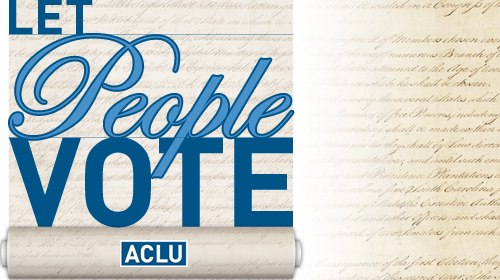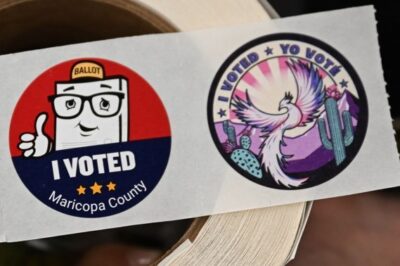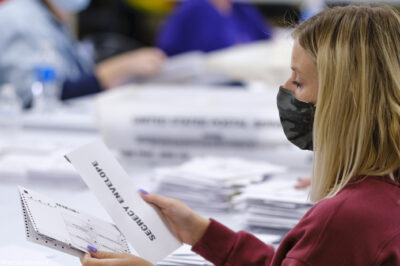
It's Super Tuesday and as voters go to the polls in Ohio today, we're reminded that in recent months, the nation has seen a tidal wave of legislation seemingly coordinated to keep some voters away from the ballot box. Ohio, as one of the perennial "swing states," is not immune. In June 2011, state legislators passed House Bill 194, which would severely limit voters' access to the ballot box by limiting early voting, prohibiting poll workers from assisting voters completing election forms and ballots and making it more difficult for local boards of elections to promote early voting to all registered voters.
Among those most impacted by cuts to early voting are working class voters like Andre Washington, a Cleveland father of five who works to support his family, and relies on public transportation. Without early voting, Andre might not be able to work voting into his busy job and child care schedule.
Another group that would suffer is churchgoers who came out in droves in 2008. Ohio saw a large increase in African-American churches coordinating vans to boards of elections after Sunday services as part of "Souls to the Polls." Under H.B. 194, boards of elections could not be open on the Sunday before Election Day, effectively ending this program.
This is certainly not the first time Ohioans have witnessed elected officials blocking their path to the ballot box. In the 2004 presidential election, fair elections advocates roundly denounced the now infamous tactics of then-Secretary of State Ken Blackwell. Among the litany of bad policies he tried to implement was a ban on voter registrations that were not printed on the correct weight of paper, ignoring federal requirements for provisional ballots, and allowing partisan voter challengers into polling precincts. The result? An election filled with long lines and widespread voter confusion.
Ohio quickly became synonymous with Election Day woes. Since 2004, officials have taken great strides in eliminating the past problems that marred state elections, but H.B. 194 represents a near total rollback of those important changes.
Luckily, activists have not stood idly by while legislators try to block the vote. After H.B. 194 passed, a coalition of organizations began to collect signatures to referendum the bill. The effort was successful, and recent polling suggests that voters are poised to veto the legislation in November. If voters do repeal the law, it will be a clear message to politicians: don't block the ballot box.
Learn more about voter suppression: Sign up for breaking news alerts, follow us on Twitter, and like us on Facebook.



